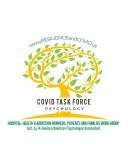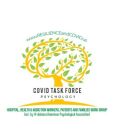Anger
3 Ways to Use Anger to Make Positive Change in Your Life
Yes, you can harness anger's powerful internal force.
Posted July 22, 2024 Reviewed by Monica Vilhauer
Key points
- Anger can mask other feelings and needs to be understood before it is acted upon.
- Anger can be cumulative and build up, directing us towards actions that may not be helpful.
- Anger, if directed, can provide the energy and fortitude to tackle complex problems.
By Patricia O’Gorman, PhD

Often, our anger is seen as a negative instead of a powerful force that, when focused, can energize us to do seemingly impossible things.
What is your anger?
Anger is a normal feeling. It is one of our major and perhaps our most misunderstood feelings. Some individuals I’ve worked with feel they’re never angry because they don’t hit anyone, scream, or throw things. What they mean is that they’re not aggressive.
However, they can still experience anger due to frustration, betrayal, disappointment, and unfairness. They may cry, withdraw, harm themselves, or sleep, even if they do not lash out at objects or at others.
We learn about our anger in childhood
I recently asked a six-year-old about her favorite feelings in a family therapy session. She smiled slightly as she turned away from me and whispered, “Anger.”
Our feelings are often clearer to us as children—we accept how we feel. We don’t judge our feelings; they just are.
The difference is that in childhood, it is normal to act on how you feel. You want to hit someone, and you do. I remember raising my voice to one of my children, who went up to his brother and just whacked him.
Being a mother who was a psychologist, I wanted to understand.
I asked, “Why did you do this?”
He answered, “Because I wanted to.”
The pureness of his motivation stunned me. Yes, anger can make us certain that our actions are right.
But is this always the case?
Anger can mask other feelings
For some, anger is preferable to feeling sad, helpless, or wrong. Many use anger to cover feeling vulnerable or afraid, as anger is seen as being strong rather than weak.
Anger is an activating emotion
Your anger prepares you for action, which is why you experience it physically.
- Your heart beats faster, increasing your blood pressure
- You breathe faster
- Your skin may begin to tingle
- Your face may flush
- Your skin may begin to sweat
- You may clench your jaw, even grind your teeth, make a fist
- Blood is rushed to your muscles to take action, away from your gut, conserving your energy so you have more power
You are now poised to act! This is good news about your anger. But to address what?
Your anger can be about more than one thing
Anger is an interesting feeling as it accumulates. Small irritations build on each other.
Oversleeping, a traffic jam, being late to drop off your children at school, missing the beginning of a meeting, your lunch date not arriving, a deadline being moved up — each separate event can build toward the end of the day “bad mood,” and feeling angry.
The challenge is that your cumulative anger may tell you to do something not in your best interest
Yes, your anger tells you something is wrong, and you need to act, but it doesn’t necessarily tell you the source of your anger or what you should do.
Many of the patients I see are increasingly speaking about becoming angry by bad drivers who may tailgate, change lanes without signaling, pass them on the right, or exceed the speed limit. They lose their temper, want to make descriptive hand gestures, yell inside their car, pound their horn, or show them, resulting in engaging in poor driving habits themselves.
Perhaps we’re all driving more poorly or, perhaps, venting anger at anonymous fellow drivers feels like a safe place to release pent-up frustration, but with some unfortunate results that are documented by statistics on increasing traffic accidents since COVID.
We also see a similar phenomenon at sporting events, where fans become enraged at referee calls and strikeouts, and at political gatherings, resulting in mob violence.
Your unacknowledged anger can also make you feel sick
Internalizing your anger can lead to problems sleeping and eating, having conflict with those you love, feeling physically ill, and possibly even developing chronic pain, which may prove elusive to diagnose.
This has led many to try to self-soothe their now physical and emotional pain through drinking and eating gummies, creating a potentially new set of problems.
The alternative is to use your anger, constructively.
Three ways to use your anger to create positive change
- Think of your anger as constructive — it is, after all, a feeling, natural, and normal.
- Feel the energy your anger gives you — think of your fury as a fiery inner dynamism that encourages you to tackle those areas of your life that are important to you, even if they are more than a little daunting.
- Now, think of the change you’d like to see. Routing this inner strength can fuel your courage and determination and help you to act on your concerns:
- Ask for what you need from a loved one
- Make a case for that raise
- Strategize how to tackle that ruling from your school board
- Work hard to have the individuals you support elected
The power of making anger your friend
When you befriend anger, you will have more energy to make the positive changes you passionately want to see in your life. Now won’t that be empowering!
.jpg?itok=1oCGoMqb)
Dr. Patricia O’Gorman is a clinical psychologist with a virtual practice, a trauma and addiction specialist, a life coach, author of nine books and numerous articles, and a speaker who has presented internationally. She co-chairs the Hospital, Health, and Addictions work group (Trauma Division, American Psychological Association), is co-founder of The National Association for Children of Addiction, and is a Board member of Horses Healing Hearts, and of the Sober St. Patrick’s Day Foundation.
References
Lee J, Liu H, Abdel-Aty M. Changes in traffic crash patterns: Before and after the outbreak of COVID-19 in Florida. Accid Anal Prev. 2023 Sep;190:107187. doi: 10.1016/j.aap.2023.107187. Epub 2023 Jun 21. PMID: 37364361; PMCID: PMC10284453.
Martin, R. Why We Get Mad. PenguinRandomHouse, 2021
https://www.penguinrandomhouse.com/books/653910/why-we-get-mad-by-ryan-martin/
Mayo Clinic Staff. COVID-19 and your mental health




